Carrots And Their Best Friends: The Ultimate Guide To Companion Planting
Carrots and Their Best Friends: The Ultimate Guide to Companion Planting
Carrots are a popular vegetable that is easy to grow and delicious to eat. But did you know that there are certain plants that can help carrots grow better? Companion planting is the practice of planting certain plants together to benefit each other. By planting carrots with their best friends, you can improve their growth, flavor, and pest resistance.
In this blog post, we will discuss the best companions for carrots, as well as some plants that you should avoid planting near them. We will also provide some tips for companion planting carrots in your own garden.
Best Companions for Carrots
- Onions: Onions are a great companion for carrots because they help to repel carrot fly, a common pest of carrots. Onions also release sulfur compounds into the soil, which can help to improve the flavor of carrots.
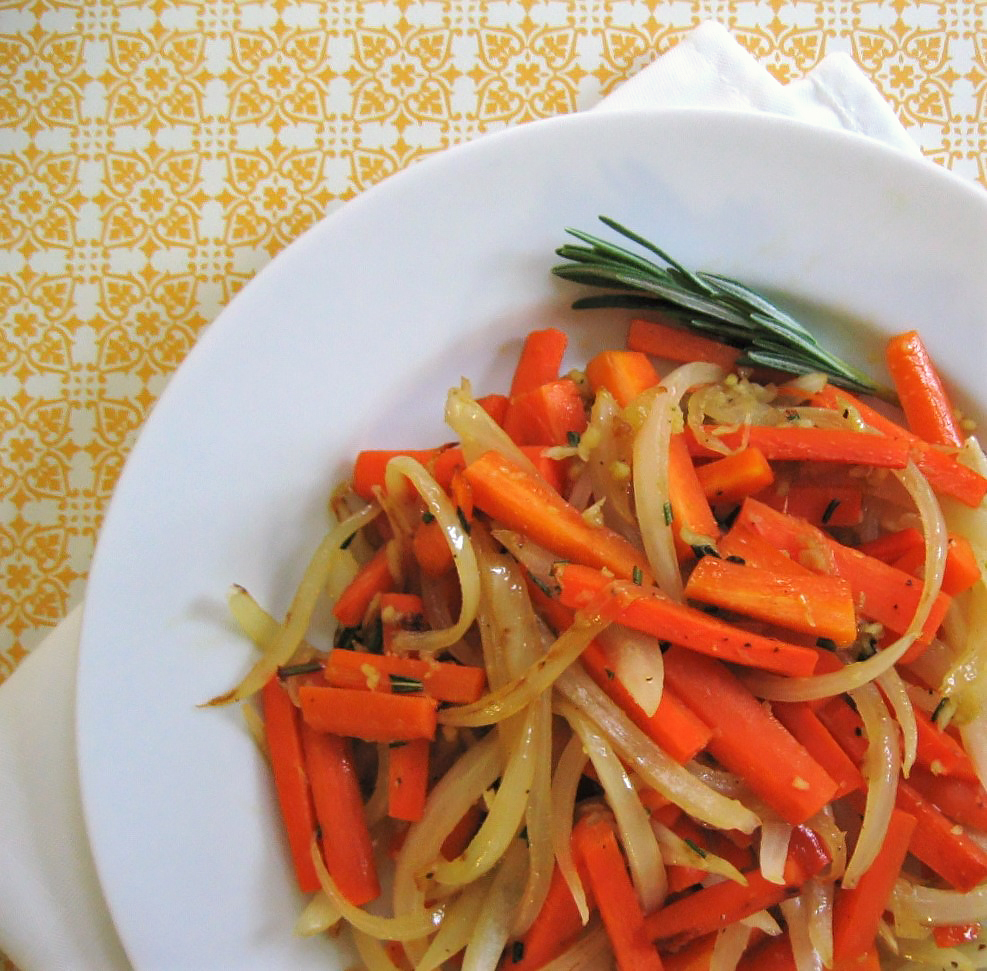
- Beans: Beans are nitrogen-fixing plants, which means that they can help to improve the nitrogen content of the soil. This is beneficial for carrots, as they are a heavy feeder. Beans also provide shade for carrots, which can help to protect them from the hot sun.
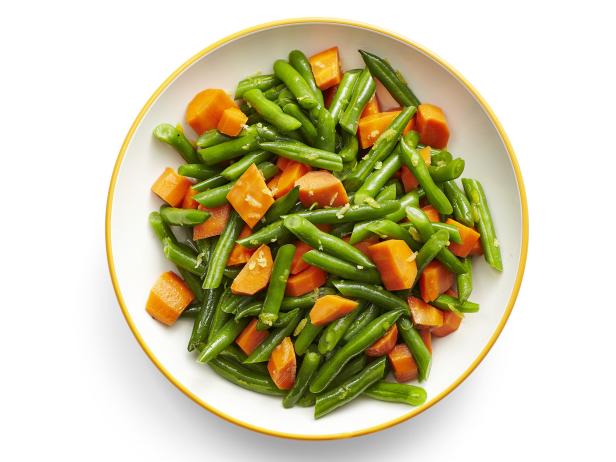
- Lettuce: Lettuce is a good companion for carrots because it helps to suppress weeds. The lettuce leaves shade the soil, making it difficult for weeds to germinate. Lettuce also has a shallow root system, so it does not compete with carrots for water and nutrients.

- Peas: Peas are another nitrogen-fixing plant that is beneficial for carrots. They also help to improve the drainage of the soil, which can help to prevent carrots from rotting. Peas are a cool-season crop, so they can be planted with carrots in the spring or fall.

- Marigolds: Marigolds are not only beautiful flowers, but they are also a great companion plant for carrots. Marigolds help to repel nematodes, which are a common pest of carrots. They also release a scent that can deter other pests, such as carrot fly.

- Nasturtiums: Nasturtiums are another beautiful flower that is also a good companion plant for carrots. Nasturtiums help to attract beneficial insects, such as ladybugs and lacewings, which can help to control pests. They also release a scent that can deter other pests, such as aphids.

Plants to Avoid Planting Near Carrots
- Dill: Dill is a member of the carrot family, so it should not be planted near carrots. Dill can cross-pollinate with carrots, which can result in carrots with a poor flavor.

- Coriander: Coriander is another member of the carrot family, so it should not be planted near carrots. Coriander can cross-pollinate with carrots, which can result in carrots with a poor flavor.

- Celery: Celery can compete with carrots for water and nutrients. It is best to avoid planting celery near carrots.
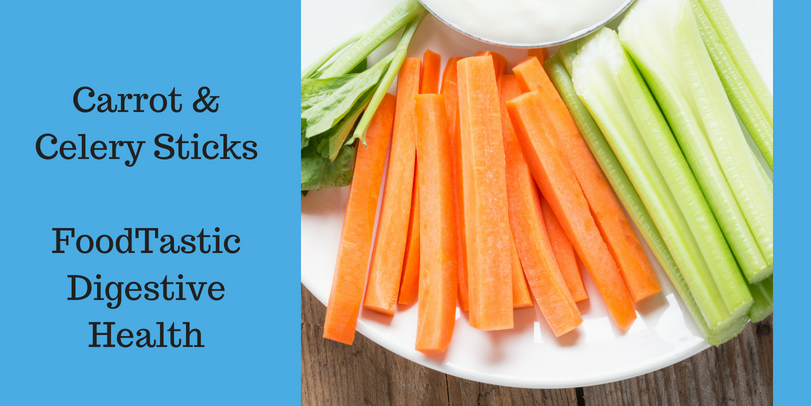
- Parsnips: Parsnips are a root vegetable that is similar to carrots. They can compete with carrots for water and nutrients, so it is best to avoid planting them near each other.
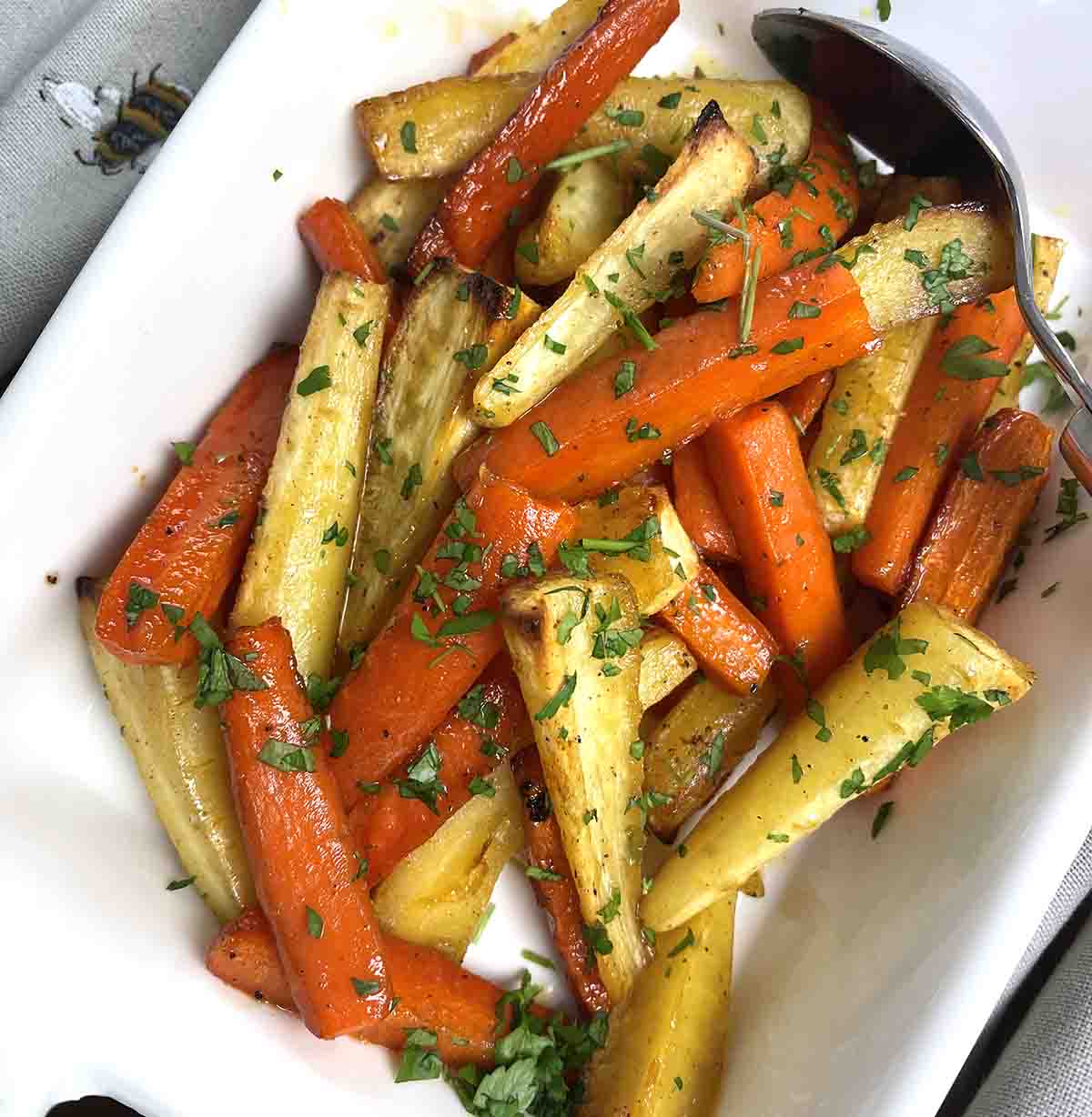
Tips for Companion Planting Carrots
- When companion planting carrots, it is important to consider the size of the plants. Some of the plants listed above, such as beans and peas, can grow quite tall. If you are planting carrots in a small space, you may want to avoid planting these plants near them.
- It is also important to consider the growth habits of the plants. Some of the plants listed above, such as lettuce and marigolds, have shallow root systems. If you are planting carrots in a heavy clay soil, you may want to avoid planting these plants near them.
- Finally, it is important to experiment with different companion plants to see what works best in your garden. The best companions for carrots may vary depending on your climate and the other plants that you are growing.
Conclusion
Companion planting is a great way to improve the growth, flavor, and pest resistance of your carrots. By planting carrots with their best friends, you can enjoy a bountiful harvest of delicious carrots.
Carrots are a delicious and nutritious root vegetable that is easy to grow in the garden. But did you know that there are certain plants that can help your carrots grow even better? These are called "carrot growing companions."
Some of the best carrot growing companions include:
- Beans: Beans fix nitrogen in the soil, which can help carrots to grow stronger and healthier.
- Lettuce: Lettuce helps to suppress weeds, which can free up your time and energy to focus on other tasks in the garden.
- Onions: Onions help to repel pests, such as carrot flies and root maggots.
- Rosemary: Rosemary helps to improve the flavor of carrots.
- Sage: Sage helps to repel pests and attract beneficial insects.
If you are interested in learning more about carrot growing companions, I recommend visiting the website Gardenia Inspiration. This website has a wealth of information about companion planting, including a list of the best carrot growing companions.
FAQ of carrot growing companions
Question 1: What are some good companion plants for carrots?
Answer: Carrots grow well with a variety of plants, but some of the best companions include:
- Onions and leeks: These plants help to repel carrot root fly, a common pest of carrots.
- Marigolds: Marigolds have a strong scent that helps to repel a variety of pests, including carrot root fly, aphids, and whiteflies.
- Nasturtiums: Nasturtiums also have a strong scent that helps to repel pests, and they also attract beneficial insects, such as ladybugs and lacewings.
- Legumes: Legumes, such as beans and peas, help to improve the nitrogen content of the soil, which benefits carrots.
- Lettuce: Lettuce helps to suppress weeds and provides shade for the carrots, which can help to prevent the carrots from bolting.
Question 2: What plants should I avoid planting near carrots?
Answer: Some plants that you should avoid planting near carrots include:
- Dill: Dill can attract carrot root fly.
- Celery: Celery can compete with carrots for water and nutrients.
- Parsnips: Parsnips can also compete with carrots for water and nutrients.
- Potatoes: Potatoes can attract the same pests as carrots, such as carrot root fly.
- Fennel: Fennel can inhibit the growth of carrots.
Question 3: How can I use companion planting to improve my carrot harvest?
Answer: Companion planting can help to improve your carrot harvest in a number of ways. For example, planting marigolds or nasturtiums near carrots can help to repel pests, while planting legumes can help to improve the nitrogen content of the soil. Additionally, planting lettuce near carrots can help to suppress weeds and provide shade for the carrots, which can help to prevent the carrots from bolting.
Question 4: What are some other benefits of companion planting?
Answer: In addition to helping to improve crop yields, companion planting can also offer a number of other benefits, such as:
- Reduced pest and disease pressure: Companion plants can help to repel pests and diseases, which can help to protect your crops.
- Improved soil quality: Companion plants can help to improve the soil quality by adding nutrients, breaking down organic matter, and suppressing weeds.
- Attracting beneficial insects: Companion plants can attract beneficial insects, such as ladybugs and lacewings, which can help to control pests.
- Diversifying your garden: Companion planting can help to diversify your garden by providing a variety of different plants, which can attract a variety of different pollinators and beneficial insects.
Question 5: What are some tips for companion planting carrots?
Answer: Here are some tips for companion planting carrots:
- Plant compatible plants together: When choosing companion plants for carrots, it is important to choose plants that are compatible with each other. For example, you should avoid planting carrots near dill, celery, parsnips, or potatoes.
- Plant the right plants at the right time: Some companion plants, such as marigolds and nasturtiums, should be planted early in the season, while other companion plants, such as legumes, can be planted later in the season.
- Space the plants properly: When planting companion plants, it is important to space the plants properly so that they have enough room to grow.
- Water and fertilize regularly: Companion plants, just like any other plants, need to be watered and fertilized regularly.
Image of carrot growing companions
- Carrots and beans: Beans fix nitrogen in the soil, which is beneficial for carrots. They also help to shade the soil, which can help to prevent carrot root fly from laying eggs.

- Carrots and chives: Chives repel carrot root fly, which is a common pest of carrots. They also help to improve the flavor of carrots.
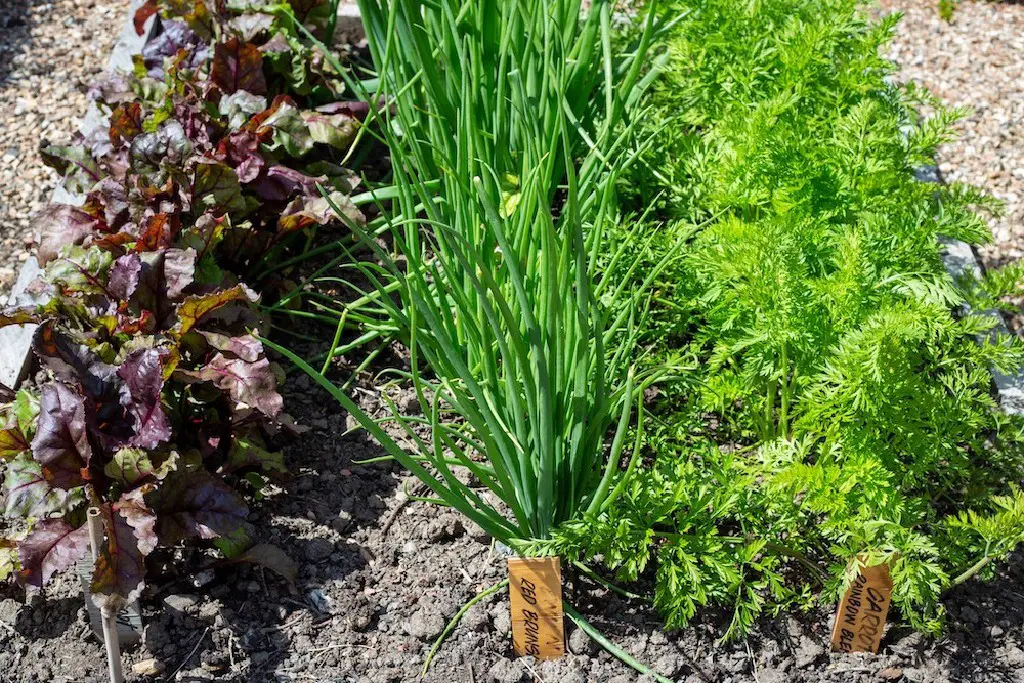
- Carrots and lettuce: Lettuce helps to suppress weeds, which can help to keep carrots free of competition. They also have similar growing requirements, so they can be planted together without any problems.
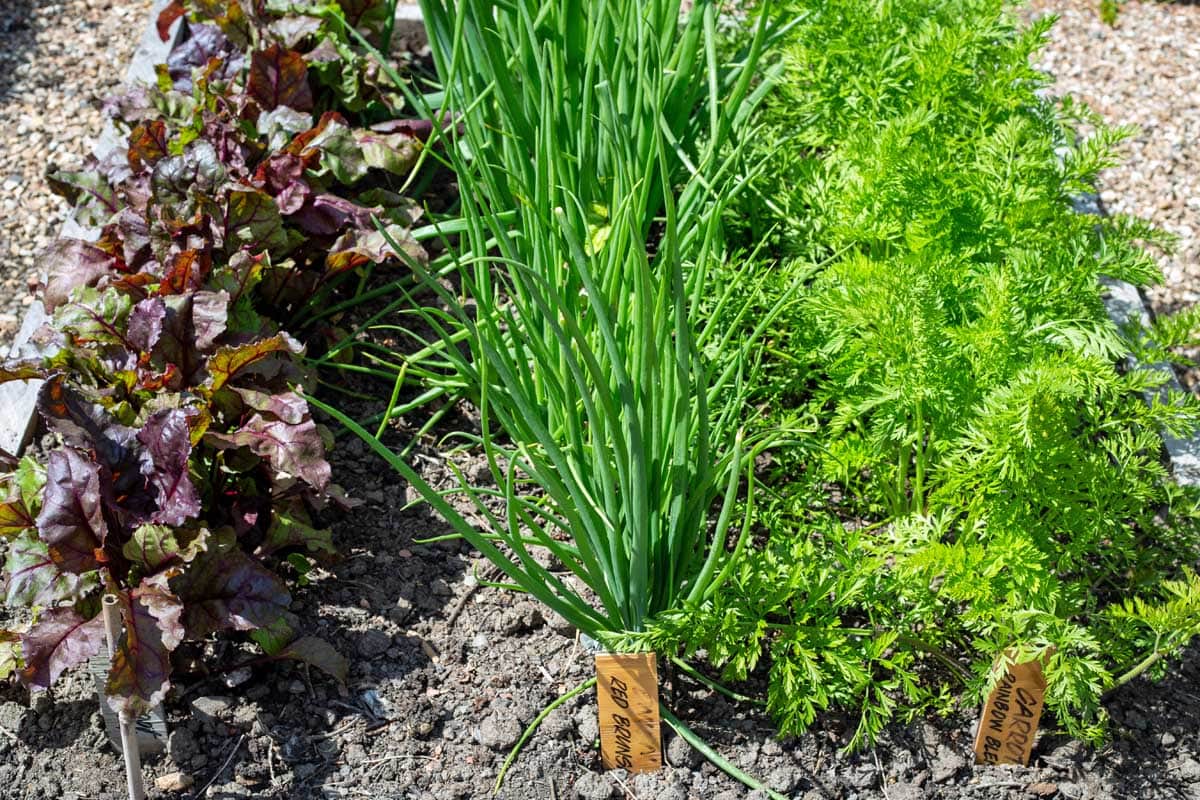
- Carrots and onions: Onions help to repel carrot root fly, and they also help to improve the flavor of carrots.

- Carrots and radishes: Radishes are quick-growing crops, so they can be planted in between carrots to help to fill up the space. They also help to suppress weeds, and they have similar growing requirements to carrots.
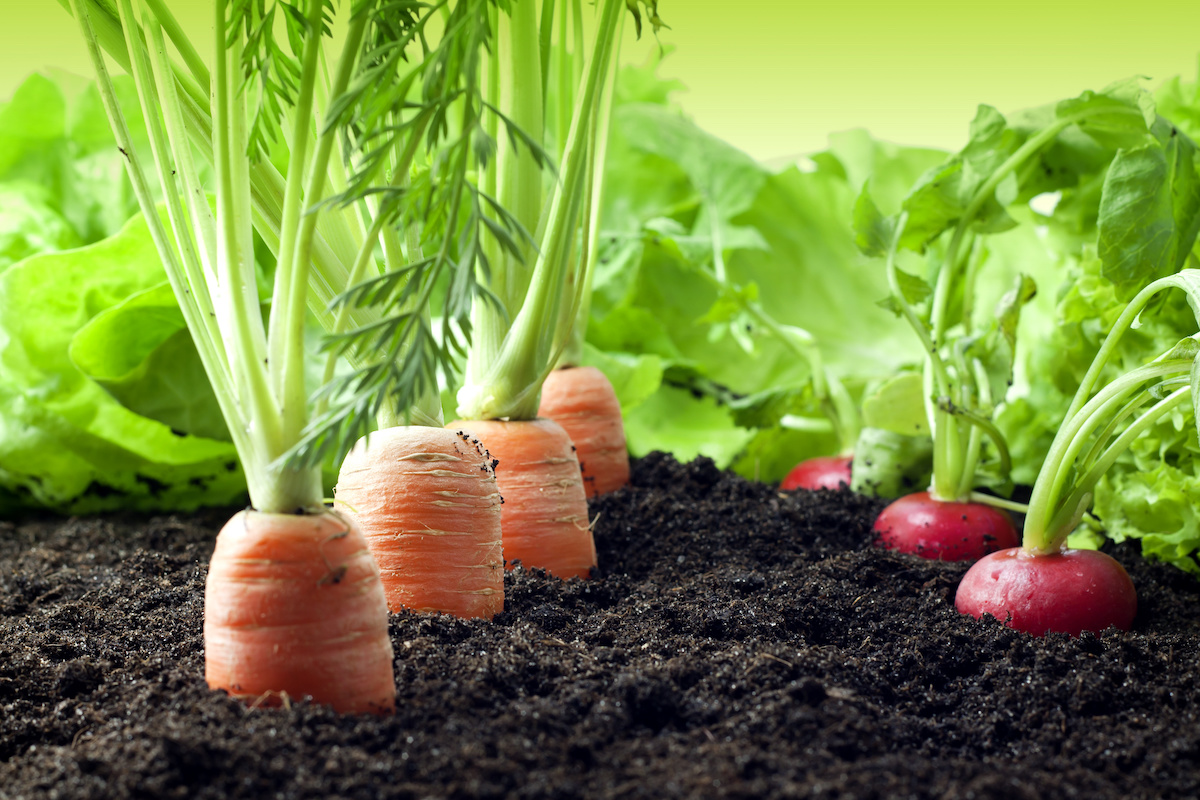
Post a Comment for "Carrots And Their Best Friends: The Ultimate Guide To Companion Planting"